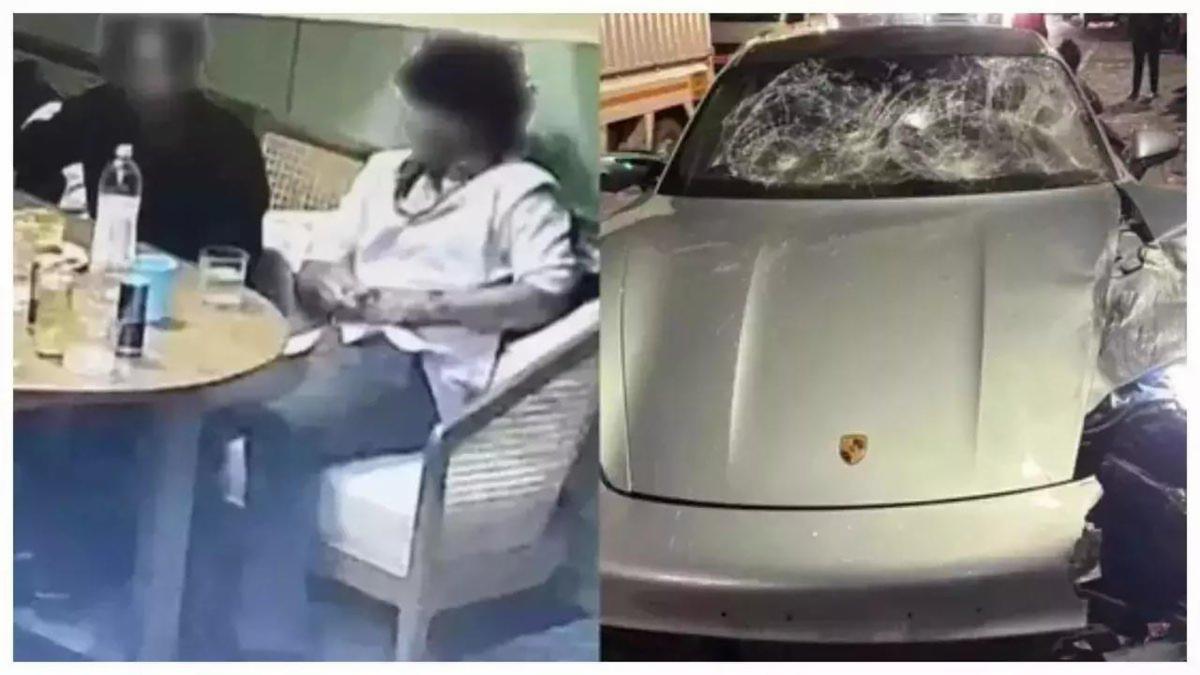Article Body
Pune Porsche crash: Can a Drunk Teen Kill & Still Be a Minor?
Intro:
At 2:15 AM on a quiet Sunday in May 2024, a Porsche Taycan worth over ₹1.5 crore came to a deadly halt in Pune’s Kalyani Nagar. Inside was a 17-year-old boy, allegedly drunk, behind the wheel without a license. Outside, on the road, lay two young tech professionals—dead on impact. As CCTV footage and witness statements surfaced, public anger surged. And yet, two months later, the Juvenile Justice Board (JJB) declared: he will be tried as a minor.
Why This Case Is Lighting Up 2024
The Pune Porsche crash is now far more than just another tragic accident. It’s a litmus test for India’s juvenile justice system, pitting reformation against retribution. Amid rising road deaths and increasing incidents of rich, underage drivers flouting the law, the case has sparked a national debate: Is the law protecting children, or shielding privilege?
The JJB’s July 2024 ruling shocked many. It rejected Pune Police's request to try the accused as an adult, arguing that the crime did not qualify as "heinous" under Section 2(33) of the Juvenile Justice (Care and Protection of Children) Act, 2015.
But here's the paradox: two people are dead, crushed under a speeding sports car. The driver was allegedly drunk. He had no license. He had been explicitly told not to drive. And yet, this isn’t "heinous"?
What Is a "Heinous Offence" in Legal Terms?
According to Indian law, a crime qualifies as heinous if it carries a minimum punishment of seven years. The defence lawyer successfully argued that "rash and negligent driving under IPC sections 304A or 279" doesn’t meet this threshold.
But the police, echoing public outrage, argued that the nature and consequence of the act—especially under the influence of alcohol—should override that technicality.
"This interpretation of the law offers blanket immunity to underage offenders, especially those with access to power and privilege," says retired Supreme Court Justice Madan Lokur, who has long advocated for juvenile justice reforms.
Why Now: The 2024–2025 Angle
India’s roads are more dangerous than ever. According to NCRB’s 2023 annual report, over 1.6 lakh people died in road accidents, with speeding and drunk driving listed among top causes. The fastest-rising subsegment? Underage drivers.
This particular case has sparked intense outrage on Google Trends, especially for queries like:
-
"Will Pune Porsche driver go to jail?"
-
"Juvenile drunk driving punishment India"
-
"Can rich minors escape justice?"
And it’s not just about this case. Similar incidents have been surfacing across cities—Delhi, Mumbai, Hyderabad—where minors drive luxury vehicles, often without consequences.
Subhead: Was It Just “Poor Judgement”?
The defence claimed the act was a moment of poor judgement, not premeditated crime.
"He has no criminal record," argued his lawyer. "His actions were impulsive, not intentional."
But critics say intent isn't the only metric. Two lives were lost. And the accused allegedly went to a bar, consumed alcohol with friends, and insisted on driving the Porsche—against explicit warnings from his father’s driver.
"That’s a series of conscious choices, not a momentary lapse," says Dr. Seema Rao, a criminologist at NALSAR University. "And the victims don't get a second chance."
Subhead: What This Means for the Justice System
Key takeaway: The JJ Act may not be broken—but its application is being gamed.
Originally enacted in 2015, the Juvenile Justice Act allowed minors aged 16–18 to be tried as adults only for heinous crimes. This was meant to balance protection with accountability, especially in cases like Delhi’s 2012 Nirbhaya case, where one of the most brutal assailants was a juvenile.
But this case shows a glaring gap: If a luxury car, alcohol, and death still don’t qualify as heinous, what does?
Subhead: What Are People Asking Now?
🔹 Should the JJ Act be amended again?
🔹 Does the system favor the privileged?
🔹 Can psychological maturity—not age—be a better metric?
Public opinion polls run by NDTV and India Today show over 80% believe the accused should be tried as an adult.
Actionable Insight: What Happens Next?
The JJB ruling isn't final. The Pune Police are likely to appeal the decision in the Sessions Court. Civil society groups and legal scholars are also pushing for a Supreme Court review of how the JJ Act defines “heinous.”
What to watch for:
-
Sessions Court appeal outcome
-
CCTV and forensic evidence disclosures
-
Any out-of-court settlements or political influence
Real Lives, Real Loss
The victims—Ajay Singh, 24, and Anamika Sharma, 23—had just started their careers at global tech firms. They were riding home after a night out with friends, unaware their lives would end in seconds.
"They were kind, hardworking kids," said Anamika’s brother in a tearful interview. "Now we’re told their deaths don’t qualify as a serious crime?"
Ask Yourself:
👉 Do you think a 17-year-old drunk driver should be protected by juvenile law?
👉 Should there be a separate clause in the law for alcohol-related deaths caused by minors?
Comment below. Share your thoughts. Let’s demand a justice system that works—for everyone.

Comments